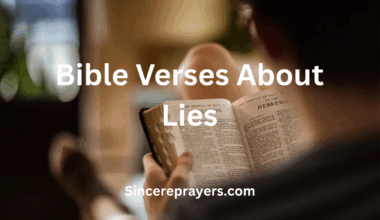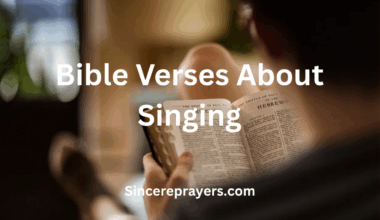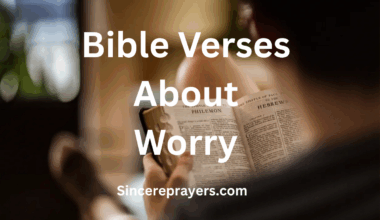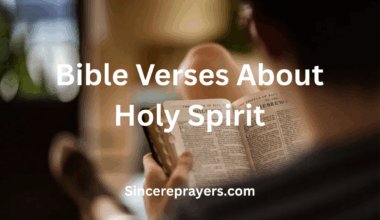Communion, also known as the Lord’s Supper, is one of the most sacred and intimate acts of worship in the Christian faith. It is not merely a ritual but a profound reminder of Christ’s love, sacrifice, and covenant with His people. Each time we partake of the bread and cup, we proclaim the Lord’s death until He comes again, drawing our hearts back to the foundation of our salvation the cross of Jesus Christ.
Through Communion, believers remember Jesus’ body broken for our sins and His blood shed for the forgiveness of humanity. It symbolizes both remembrance and participation remembering what He has done and sharing spiritually in His redemptive work. Communion reminds us that our faith is not based on merit but on grace, not on performance but on the perfect sacrifice of the Lamb of God.
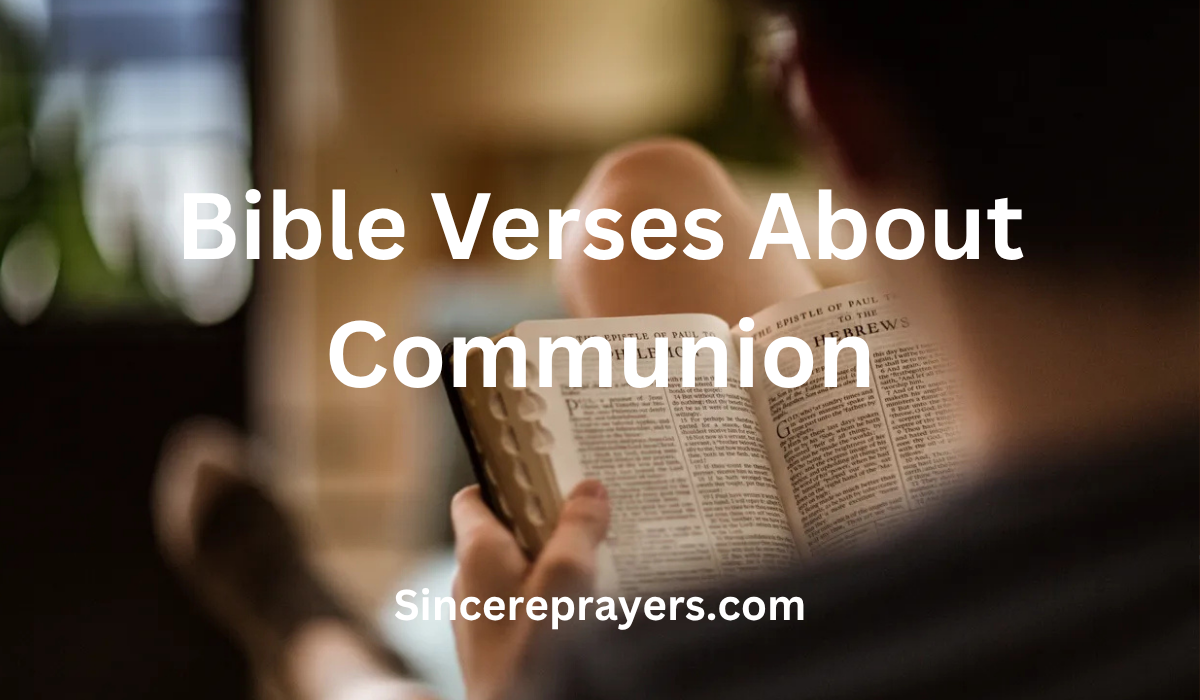
Ultimately, Communion is both a sacred reflection and a joyful anticipation. We look back in gratitude to the cross, inward in examination of our hearts, and forward in hope to Christ’s return. The following 35 Bible verses about Communion reveal the depth, reverence, and beauty of this divine ordinance, guiding us to approach the table of grace with renewed understanding and heartfelt worship.
35 Most Effective Bible Verses About Communion in 2025
1. Matthew 26:26
“While they were eating, Jesus took bread, and when he had given thanks, he broke it and gave it to his disciples, saying, ‘Take and eat; this is my body.’”
In this sacred moment, Jesus establishes the institution of Communion. The bread represents His body, which would soon be broken for humanity’s redemption. By giving thanks and offering it to His disciples, He teaches us to remember His sacrifice with gratitude. Each time we partake of the bread, we are reminded of His suffering and love, renewing our faith in the finished work of the cross.
2. Matthew 26:27–28
“Then he took a cup, and when he had given thanks, he gave it to them, saying, ‘Drink from it, all of you. This is my blood of the covenant, which is poured out for many for the forgiveness of sins.’”
The cup symbolizes the blood Jesus shed to establish a new covenant of grace. His blood brings forgiveness, reconciliation, and a renewed relationship with God. When we drink from the cup, we declare our faith in this covenant, acknowledging that salvation is possible only through Christ’s sacrifice. Communion becomes a moment of both repentance and celebration—a remembrance of mercy and a pledge of devotion.
3. Luke 22:19
“And he took bread, gave thanks and broke it, and gave it to them, saying, ‘This is my body given for you; do this in remembrance of me.’”
Jesus’ words “Do this in remembrance of me” form the heart of Communion. It is not a mere ritual but a sacred act of remembering His body given for us. Each breaking of bread draws us into deeper awareness of His suffering and love. Communion transforms remembrance into worship, reminding us that His body was willingly offered to redeem all who believe.
4. Luke 22:20
“In the same way, after the supper he took the cup, saying, ‘This cup is the new covenant in my blood, which is poured out for you.’”
Here, Jesus speaks of the new covenant sealed in His blood. The old sacrifices were temporary, but His blood brings eternal redemption. Each sip of the cup reminds believers that their sins are forgiven through the power of His cross. Communion thus becomes a testimony of grace—one that invites us to walk in renewed faith and holiness before God.
5. 1 Corinthians 10:16
“Is not the cup of thanksgiving for which we give thanks a participation in the blood of Christ? And is not the bread that we break a participation in the body of Christ?”
Paul emphasizes that Communion is not symbolic alone—it is spiritual participation in the life of Christ. As we partake, we share in His sacrifice and the benefits of His redemption. This participation reminds us that Communion unites us with Christ and with one another as members of His body. Gratitude becomes the foundation of our fellowship with God.
6. 1 Corinthians 10:17
“Because there is one loaf, we, who are many, are one body, for we all share the one loaf.”
Communion not only connects us to Christ but also to each other. As we share from one loaf, we affirm our unity as the body of Christ. This verse challenges division within the church and calls us to live in harmony, love, and humility. The Lord’s Table unites believers beyond boundaries, reminding us that we all belong to one Savior.
7. 1 Corinthians 11:23–24
“The Lord Jesus, on the night he was betrayed, took bread, and when he had given thanks, he broke it and said, ‘This is my body, which is for you; do this in remembrance of me.’”
Paul recounts Christ’s institution of Communion, emphasizing remembrance and gratitude. The bread symbolizes His body, offered selflessly for our redemption. By partaking, we not only honor His sacrifice but also renew our personal covenant with Him. Every time we share the bread, we declare His love and remember that salvation was purchased at great cost—through the body broken for us.
8. 1 Corinthians 11:25
“In the same way, after supper he took the cup, saying, ‘This cup is the new covenant in my blood; do this, whenever you drink it, in remembrance of me.’”
The cup represents Christ’s blood, sealing the new covenant of grace. Each time we drink, we are reminded that forgiveness flows not from our merit but from His mercy. Communion invites us to remember the price of redemption and live in thankful obedience. It is both a memorial and a renewal of our commitment to Christ’s sacrifice and His everlasting promise.
9. 1 Corinthians 11:26
“For whenever you eat this bread and drink this cup, you proclaim the Lord’s death until he comes.”
Communion is both remembrance and proclamation. Every time believers gather at the Lord’s Table, they publicly declare the power of the cross and the hope of Christ’s return. It unites the church in faith and anticipation, reminding us that our Savior who died is coming again. Thus, Communion becomes an ongoing testimony of grace and future glory.
10. John 6:53
“Jesus said to them, ‘Very truly I tell you, unless you eat the flesh of the Son of Man and drink his blood, you have no life in you.’”
Jesus’ words symbolize the necessity of spiritual communion with Him. To “eat” and “drink” of Him is to receive His life through faith. Communion reflects this truth—it is a visible act of inward grace. As believers partake of the bread and cup, they acknowledge that true life is found only in Christ, who nourishes and sustains the soul eternally.
11. John 6:54
“Whoever eats my flesh and drinks my blood has eternal life, and I will raise them up at the last day.”
This verse highlights the eternal promise attached to communion with Christ. Those who partake in faith are united with Him in life and in resurrection. The act symbolizes an everlasting covenant, affirming that our hope rests in His redeeming power. Communion, therefore, points us beyond the present moment to the eternal glory awaiting those who belong to Jesus.
12. John 6:55–56
“For my flesh is real food and my blood is real drink. Whoever eats my flesh and drinks my blood remains in me, and I in them.”
Jesus reveals the profound spiritual reality of abiding in Him. Communion expresses this mutual indwelling—Christ in us and we in Him. Through the bread and cup, we celebrate this union, drawing nourishment for our faith. It is a reminder that spiritual vitality flows not from earthly sources but from constant communion with the living Savior.
13. Acts 2:42
“They devoted themselves to the apostles’ teaching and to fellowship, to the breaking of bread and to prayer.”
The early church modeled a life of spiritual devotion centered on Christ. “The breaking of bread” signifies both fellowship and Communion—a shared remembrance of Jesus’ sacrifice. This practice fostered unity, love, and growth among believers. Communion remains a vital expression of faith that strengthens the church, deepens community, and keeps the focus on Christ’s redeeming work.
14. Acts 20:7
“On the first day of the week we came together to break bread.”
The early Christians gathered regularly to celebrate the Lord’s Supper, demonstrating that Communion was integral to their worship. It wasn’t a mere ceremony but a joyful act of remembrance and unity. Meeting on the first day—the day of Christ’s resurrection—symbolized victory over death. This pattern reminds believers to continually honor Christ’s sacrifice and resurrection with gratitude and communal devotion.
15. Mark 14:22
“While they were eating, Jesus took bread, and when he had given thanks, he broke it and gave it to his disciples, saying, ‘Take it; this is my body.’”
Here, Jesus personally identifies the bread with His body, showing that His sacrifice would be deeply personal. When believers take the bread, they are invited into a tangible experience of grace. Communion, therefore, bridges the spiritual and physical—it allows believers to touch, taste, and remember the love that gave itself completely for humanity’s redemption.
16. Mark 14:23–24
“Then he took a cup, and when he had given thanks, he gave it to them, and they all drank from it. ‘This is my blood of the covenant, which is poured out for many,’ he said to them.”
Jesus’ act of sharing the cup with His disciples foreshadows His ultimate act of love—the shedding of His blood. The phrase “poured out for many” underscores the universality of salvation. Communion, then, is not only personal but also communal—it reminds us that Christ’s sacrifice is sufficient for all who believe, drawing the church together under the new covenant of grace.
17. Hebrews 9:14
“How much more, then, will the blood of Christ, who through the eternal Spirit offered himself unblemished to God, cleanse our consciences from acts that lead to death, so that we may serve the living God!”
This verse explains the cleansing power behind Communion’s symbolism. Christ’s blood purifies not just outwardly but inwardly, freeing us from guilt and sin. Each time we drink the cup, we remember that His perfect sacrifice cleanses our hearts. Communion celebrates this inward renewal and calls us to serve God with a clear conscience and a grateful spirit.
18. Hebrews 10:19–20
“Therefore, brothers and sisters, since we have confidence to enter the Most Holy Place by the blood of Jesus, by a new and living way opened for us through the curtain, that is, his body.”
Through Christ’s body and blood, we gain direct access to God. Communion is a vivid reminder of this divine privilege. The bread and cup symbolize the torn veil and open way to the Father’s presence. When believers partake, they celebrate both forgiveness and fellowship, boldly drawing near to God with hearts washed clean by the blood of the Lamb.
19. Hebrews 13:20–21
“Now may the God of peace, who through the blood of the eternal covenant brought back from the dead our Lord Jesus, that great Shepherd of the sheep, equip you with everything good for doing his will.”
The blood of the eternal covenant—celebrated in Communion—secures our relationship with God forever. Through Christ’s sacrifice, we are equipped to serve Him faithfully. The Lord’s Table becomes a place of both remembrance and empowerment. As we partake, we are strengthened to live righteously, guided by the same Shepherd who laid down His life for His sheep.
20. Isaiah 53:5
“But he was pierced for our transgressions, he was crushed for our iniquities; the punishment that brought us peace was on him, and by his wounds we are healed.”
Isaiah prophesies the suffering of Christ, whose body was broken for our redemption. Communion recalls this prophetic truth—the bread representing His pierced body, the cup His poured-out blood. When we partake, we remember the price of our peace and healing. It humbles us to know that our forgiveness and wholeness were secured through His wounds and suffering.
21. Isaiah 53:12
“For he bore the sin of many, and made intercession for the transgressors.”
This prophecy foreshadows Christ’s sacrificial death on the cross. He carried our sins and interceded on our behalf before the Father. When we take Communion, we remember that His body and blood were offered to reconcile us to God. The Lord’s Table becomes a sacred place of reflection and gratitude, where believers recall the mercy that flowed from His willing sacrifice.
22. Psalm 116:13
“I will lift up the cup of salvation and call on the name of the Lord.”
The psalmist’s declaration reflects a heart of worship and thanksgiving. To “lift up the cup of salvation” mirrors our act of Communion—honoring the Lord for His deliverance. Each time we drink the cup, we proclaim God’s faithfulness and our dependence on His grace. Communion, therefore, becomes a joyful acknowledgment that salvation comes only through the Lord’s mighty hand.
23. Zechariah 9:11
“As for you, because of the blood of my covenant with you, I will free your prisoners from the waterless pit.”
This prophetic word points to the liberating power of Christ’s blood. Through the new covenant, believers are set free from the pit of sin and despair. When we share the cup of Communion, we celebrate that freedom. The blood of Jesus not only redeems but also releases us into new life, filled with hope, peace, and divine purpose.
24. Romans 5:8–9
“But God demonstrates his own love for us in this: While we were still sinners, Christ died for us. Since we have now been justified by his blood, how much more shall we be saved from God’s wrath through him!”
Communion is a vivid reminder of God’s love revealed through Christ’s death. The bread and cup symbolize the justification and salvation we have received by His blood. As we partake, we reflect on this undeserved grace—that while we were lost, Christ willingly gave Himself for us. His sacrifice rescues us from judgment and restores us to fellowship with God.
25. Romans 8:32
“He who did not spare his own Son, but gave him up for us all—how will he not also, along with him, graciously give us all things?”
Communion points to the generosity of God’s love. If He gave His Son for our redemption, we can trust Him for everything else we need. Every time we take the bread and cup, we are reminded that divine provision flows from the same grace that saved us. The Lord’s Table strengthens our faith in the unfailing goodness of our heavenly Father.
26. 1 Peter 1:18–19
“For you know that it was not with perishable things such as silver or gold that you were redeemed…but with the precious blood of Christ, a lamb without blemish or defect.”
Peter reminds believers that redemption came at an immeasurable cost—the blood of Christ. Communion helps us remember that our salvation cannot be earned or bought. The bread and cup symbolize the priceless exchange that occurred at Calvary, where the spotless Lamb bore our sins. Each time we partake, we honor the sacrifice that secured our eternal freedom.
27. 1 Peter 2:24
“He himself bore our sins in his body on the cross, so that we might die to sins and live for righteousness; by his wounds you have been healed.”
Communion reaffirms our healing and deliverance through Christ’s wounds. As we eat the bread, we remember His body that bore our sins. His sacrifice was not only for forgiveness but also for transformation. We are called to die to sin and live in righteousness. Each celebration of Communion is a recommitment to walk in the newness of life He provides.
28. Revelation 1:5–6
“To him who loves us and has freed us from our sins by his blood, and has made us to be a kingdom and priests to serve his God and Father—to him be glory and power for ever and ever! Amen.”
John’s words glorify the risen Christ, whose blood has freed us from sin and made us royalty in God’s kingdom. Communion celebrates this divine identity and calling. As we share the bread and cup, we rejoice not only in our forgiveness but also in our purpose—to serve and worship Him forever with grateful hearts.
29. Revelation 5:9
“You are worthy…because you were slain, and with your blood you purchased for God persons from every tribe and language and people and nation.”
Communion reminds us that Christ’s sacrifice transcends culture, language, and time. His blood redeemed people from every nation, forming one global family of faith. Each time we partake, we celebrate His worthiness and the inclusiveness of His grace. The Lord’s Supper unites believers across the world under the banner of the Lamb who was slain.
30. Revelation 19:9
“Blessed are those who are invited to the wedding supper of the Lamb!”
The Communion table foreshadows a greater feast—the marriage supper of the Lamb. Each time we partake, we anticipate that glorious day when Christ and His bride, the Church, will celebrate eternal union. Communion is a foretaste of heaven’s joy, reminding us that every act of remembrance is also an act of hope for the coming glory.
31. John 15:5
“I am the vine; you are the branches. If you remain in me and I in you, you will bear much fruit.”
Communion reflects the intimate union believers have with Christ. Just as branches draw life from the vine, we receive spiritual nourishment through our connection with Him. The cup symbolizes His sustaining life flowing within us. Each time we partake, we reaffirm our dependence on Him, drawing strength to live fruitful, Christ-centered lives rooted in His love.
32. 2 Corinthians 5:21
“God made him who had no sin to be sin for us, so that in him we might become the righteousness of God.”
Communion reminds us of this divine exchange—Christ took our sin and gave us His righteousness. The bread and cup testify to this redemptive act. Each time we come to the table, we remember that we are not defined by our failures but by His grace. Through His sacrifice, we stand justified and reconciled before a holy God.
33. Ephesians 1:7
“In him we have redemption through his blood, the forgiveness of sins, in accordance with the riches of God’s grace.”
This verse captures the essence of Communion: redemption and forgiveness through Christ’s blood. The table is a place of renewal, where grace overflows and sins are remembered no more. Each participation becomes a celebration of mercy—a moment to thank God for His rich grace that continues to cleanse and restore us through the power of Jesus’ sacrifice.
34. Philippians 2:8
“And being found in appearance as a man, he humbled himself by becoming obedient to death—even death on a cross!”
Communion draws our attention to Christ’s humility and obedience. The bread and cup remind us of the cross, where love conquered pride and death. His surrender becomes our example—calling us to humble obedience in our own lives. Each time we partake, we remember that the way to true glory is found in humble submission to God’s will.
35. Colossians 1:20
“And through him to reconcile to himself all things…by making peace through his blood, shed on the cross.”
The final verse summarizes the heart of Communion—peace and reconciliation through Christ’s blood. At the table, we remember that His sacrifice restored our relationship with God and others. Communion invites us to live as peacemakers, extending the same grace we have received. Each celebration becomes a testimony of divine peace, healing, and restored fellowship with God.
Conclusion
Communion stands as a sacred bridge between remembrance, unity, and anticipation. It draws believers back to the cross, the place where love and justice met perfectly. Through the bread and cup, we remember the price of redemption and the mercy poured out for humanity. It reminds us that faith is not built on emotion but on the finished work of Christ a sacrifice that forever reconciles us to God.
Beyond remembrance, Communion is also an invitation to examine our hearts. Paul urges believers to partake in a worthy manner, reflecting on our walk with God and our relationships with others. It calls us to repentance, humility, and gratitude. As we eat and drink, we affirm our unity as one body, the Church of Christ, bound together by His love and sustained by His Spirit.
Finally, Communion points us forward with hope. It is not only a memorial of what Christ has done but a proclamation of what He will do. Every time we gather at the Lord’s Table, we look toward the day when faith will become sight, and we will sit at the marriage supper of the Lamb. Until that day, Communion nourishes our faith, strengthens our fellowship, and keeps our eyes fixed on Jesus the Bread of Life and the Cup of Salvation.

